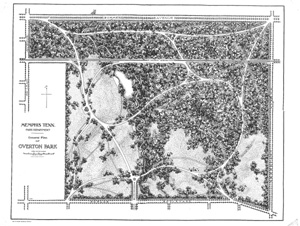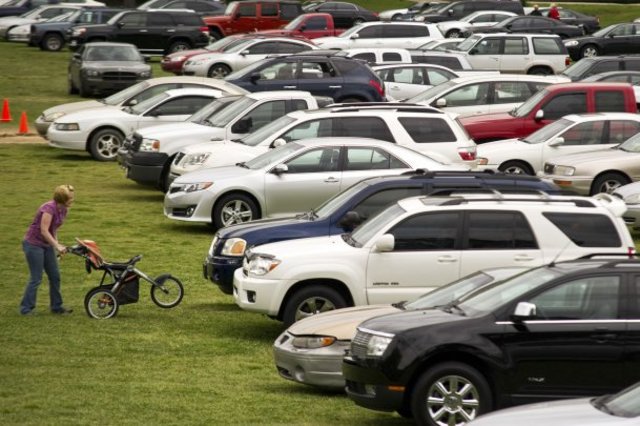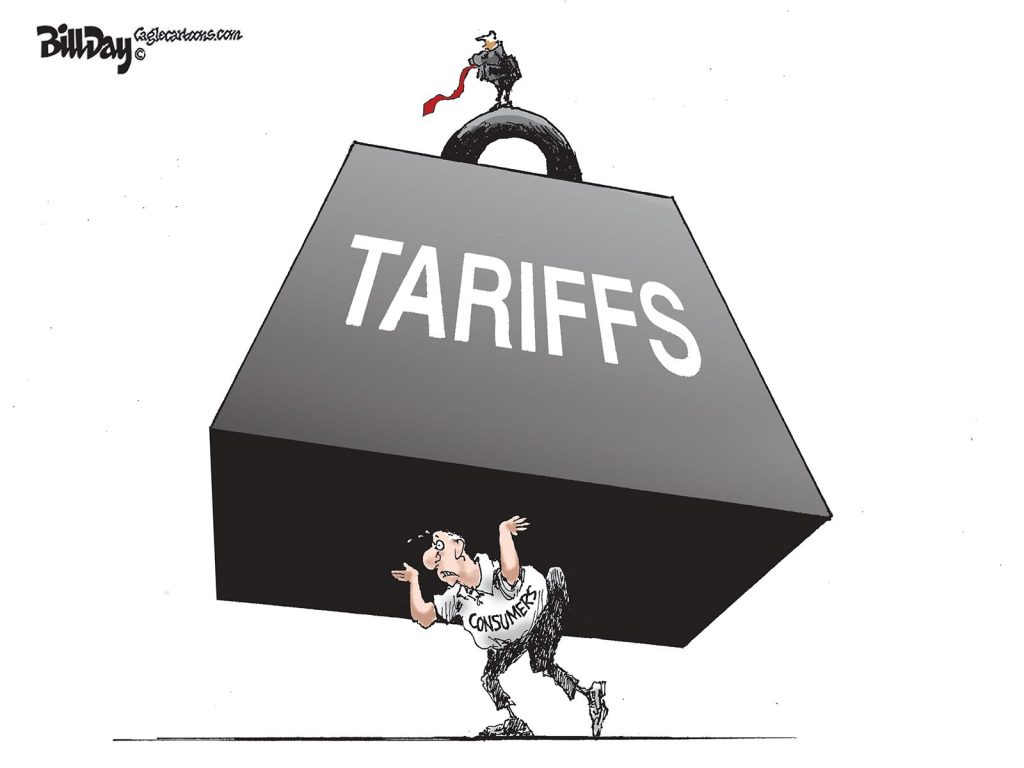We’ve been looking back at the 15 most read blog posts of the 153 we wrote last year. We’ve previously posted #11-15 and today, we’re posting #6-10. As we wrote previously, we appreciate you reading and commenting, and most of all, caring deeply about Memphis.
Here are #6-10:
#10: Low Park Rankings Bolster Overton Park Protection Movement – June 6, 2016
In a city with one of the lowest ParkScore ratings in the U.S., it’s no wonder that so many Memphians are passionate about the loss of precious parkland to zoo parking in Overton Park.
Essentially, the casual disregard shown to the greensward over many years is evidence of a decades old attitude that puts little importance on parkland.
The results of that attitude reverberates in Memphis’ dismal park rankings.
That the people fighting to get the zoo parking lot out of Overton Park are still subjected to gratuitous comments by television commentators and in television coverage says much more about television news than about the protesters. After all, the coverage and commentaries reflect a lack of understanding about the importance of parks in the life and future of cities.
As is often the case, the coverage and commentaries demonstrate television’s tendency to see things as personality conflicts, horse races, and winners and losers rather than to shine a light on the substantive issues and policies that underlie the news headline.
Here’s the headline for the cities’ park rankings: Memphis ranks #85 out of 100 cities. The ranking takes into account park acreage, spending on parks, types and numbers of facilities, and accessibility.
Here’s the tale of the tape: Memphis has 9,145 acres of parkland, or 4.7% of city’s total size; median park size is 10 acres; park spending per resident is $53.09; 2.9 basketball hoops per 10,000 population; 0.5 dog parks per 100,000 residents; 0.9 recreation/senior centers per 20,000, and only 41% of the population is within a 10-minute walk of a park.
Memphis most-visited park is Overton Park, and its largest park is Martin Luther King Riverside Park.
Of the four indicators that make up the ParkScore, Memphis scored 23 out of 40 points on acreage; 5 out of 20 points on investment; 8 out of 20 points for facilities, and 9 out of 40 points for access. Memphis’ overall score was 36.5. The lowest score in the rankings was 28 and for Fort Wayne, Indiana, and the highest score was Minneapolis at 86.5.
Read more here.
#9: Winners And Losers In The Greensward Parking Controversy – July 25, 2016
The lingering controversy about Memphis Zoo parking on the greensward seems finally to have run its course. Barring a last minute glitch in fine tuning a few details of the accord approved unanimously by Memphis City Council, the two and a half years’ dispute has been resolved.
All in all, the controversy could not have come at a worse time for Memphis emerging new brand. More and more, as we wrote in a recent Thrillist commentary, Memphis is recalibrating its national image from a slow-moving Southern city to one known for its distinctive outdoor recreation and green spaces.
And yet, in the midst of this historic repositioning, Memphis was mired in an argument about whether parkland is best used as a park or a parking lot. It once again resulted in Memphis looking stuck in time, because as cities around the U.S. were betting on the power of parks, it suggested that Memphis failed to recognize their impact on quality of life, talent retention and recruitment, and health outcomes.
In a sentence, parks are a basic to a great city, and to paraphrase Memphis Mayor Jim Strickland, there’s really no reason that they shouldn’t be brilliant.
All that said, there were some clear winners and losers in the great greensward controversy:
Winners
In truth, inside City Hall when the Conservancy group was created, the motivation was primarily about shifting city costs to a private management group in hopes of better operations and maintenance for Memphis’ great city park. With Memphis park budgets stagnating or reducing, it was about a Conservancy paying to make the park cleaner, more visually appealing, and more vibrant. Few would have predicted at the time that the Conservancy would come to display the kind of advocacy that would ultimately pit it against the power of the Memphis Zoo and by extension, Memphis City Council.
Few board members have ever had more pressure from influential Memphians directed at them than the Conservancy board, but under the Zen-like leadership of Conservancy executive director Tina Sullivan, the organization not only withstood it but produced the most significant victory since Shelby Farms was protected from commercial development. It’s difficult to praise Ms. Sullivan too much. With complaints sometimes coming from both sides, she remained calm, confident in her cause, and gifted in her ability to articulate why the park matters to every citizen of Memphis.
It was widely expected that the Conservancy would take it on the chin when the final peace accords with the zoo were reached, and while the agreement has been called a compromise, from where we sit, the Conservancy – or put more accurately, the public – were the winners. Best of all, there is now a solid constituency and a powerful momentum behind the Conservancy’s vision for a really great urban park in the center of Memphis.
Mayor Strickland
We’ve written about this in the wake of the mayor’s greensward decision, so we won’t belabor it again here, but the mayor in six months was able to achieve what was thought to be unachievable: reaching a decision that would be supported by both the Conservancy and the Zoo. The back story in reaching this milestone – with its internal and external politics – is more interesting than we can imagine, and it is a testament to a skill he honed as a city legislator that Mayor Strickland was able to pull it off. There were few people who predicted that he would make the politically gutsy decision that he made in bringing this issue to a close and to do it without incurring any serious political cost, and yet, he did just that.
Read more here.
#8: Sorry, But Trump’s Election Is Personal – November 11, 2016
It is inconceivable that the president of the United States could be someone my granddaughters cannot respect.
But that is precisely where we will be January 20.
That is why all the platitudes about uniting to support the new president, about the American example of presidential transition, and about giving him a chance to be successful fall flat with us.
For us, this was never a philosophical debate or a battle between differing political points of view. We’ve engaged in those for years.
Rather, this time, it was personal.
It was about what kind of country we want the United States to be, but more to the point, it was fundamental principles we hold true.
As the quotation attributed to Thomas Jefferson said: “In matters of style, swim with the current. In matters of principle, stand like a rock.”
That’s why it’s not possible for us to treat this as an ordinary presidential election. We’ve been on the losing side of elections before and while we were disappointed, we accepted the outcome and wished success for the new president.
But none of these presidents displayed vile behaviors that insulted morality and defied norms about what is right and what is wrong.
It is not possible that we can now be tolerant about intolerable behaviors and explain later to our granddaughters that in the wake of the election, we simply moved on and ignored his crass and repulsive behavior and the countless comments boasting about it.
We cannot now simply pretend that he did not vilify Latinx and Black Lives Matter.
We cannot merely forget hate language that disparaged and defamed millions of Americans’ religion and race.
We cannot overlook rhetoric that treated cities, particularly neighborhoods where African Americans live, as centers of crime, poverty, and ignorance.
We cannot pretend that we are not rejecting American values by rejecting immigrants fleeing for their lives.
We cannot shed our principles now as easy as evangelicals casting their ballots for Donald Trump on election day.
These words and actions are not simply beliefs and factors defining a political point of view. These are the things that characterize personal character and ethics, and if we refuse to shrug and accept them in a friend, how do we now accept them in our president?
So, the answer is simple: we won’t. We can’t.
Read more here.
#7: Mayor’s Decision On Greensward Major Step In Right Direction – July 1, 2016
It could well be that we look back to today’s decision regarding zoo parking on Overton Park’s greensward as the seminal moment when we came face-to-face with the brand of leadership that Jim Strickland brought to the mayor’s office.
All in all, his decision was a gutsy political call and flew in the face of most predictions of what he would do. Rather, his recommendation had the earmarks of a man who’s getting more and more comfortable with his responsibilities and who’s willing to defy conventional wisdom to make a clear, definite decision to protect the greensward as parkland, not parking land.
If, as we expect, the details of his proposal match the recommendations outlined in his regular Friday email, it places the mayor squarely on the side of neighborhood activists fighting to enhance and protect key quality of life assets. It could also create momentum that will serve him well as he moves to other key decisions such as appointment of a new police director.
A few months ago, we wrote that it was hard to determine what kind of leadership Mr. Strickland would bring to the mayor’s office because he had been consumed with unexpected crises and unresolved problems that remained from the previous administration. As a result, it was difficult for him to find his rhythm, but with the budget behind him and many of the ticklish issues now addressed, the greensward issue was the first to give an indication of his mayoral style.
Time will tell if we are right, but it seems now that he’s getting more and more comfortable sitting behind the mayor’s desk and that he’s willing to make a tough call that defies political punditry and demonstrates that he’s making the transition from the legislative to executive branch.
It’s hard to think of a better foil for his decision than Zoo President Chuck Brady, who characteristically opposed the mayor’s reasonable compromise and promised to take his fight to Memphis City Council, which, as a result of a faulty legal opinion by its attorney, remains at the center of this dispute. However, a majority of the Council had indicated that they would support whatever recommendation the mayor made, so we’re hoping that the Council will say “enough is enough” to Mr. Brady’s continuing ham-handed, tin-eared behavior.
He has done the zoo no favors throughout this controversy with his intemperate comments and his provocations on the greensward (such as routing cars there when there were empty spaces on the zoo parking lots), but his most grievous action has been to drive a wedge between a much-loved amenity and many Memphians, notably the neighborhoods surrounding it.
Most of all, Mr. Brady’s position defies a simple principle: that Memphians are willing to act in their own hometown the same way they act when they visit other cities. All of us have walked blocks and blocks to visit attractions when we are out of town. If Mr. Brady’s hyperbole about the zoo is correct, surely, his visitors are willing to do the same here.
Despite Mr. Brady, it’s a hopeful day, and Mayor Strickland’s proposal deserves wide support.
Read more here.
#6: New City Council’s Chance To Set New Tone For The Future – February 28, 2016
For as long as we can remember, the Memphis City Council has had the lowest approval rating in polling about local elected officials and governmental bodies.
Those ratings have been aggravated in recent years by declining public confidence in government generally, and we had hoped that the infusion of new faces and energy on the City Council would be the opportunity for it to reestablish itself as the place where citizen/elected officials are closely in touch with the public, and most of all, value citizen input and engagement.
It’s a hope that could end up being merely wishful thinking.
That’s because City Council has scheduled an executive session – a closed to the public discussion of public business – for tomorrow, and the subject is Overton Park. Reliable reports suggest that the Council may inject itself and enflame the ongoing debate about greensward parking by the Memphis Zoo. Apparently, the main idea is to give the zoo control of the greensward, but conversations have gone so far as to suggest eliminating the agreement with the nationally praised Overton Park Conservancy altogether.
There are so many reasons this is a half-baked idea, but here are a few of them.
One, there’s no basis for this to be discussed in a secret executive session meeting. (Update: City Council office says the meeting will be open to the public. That’s good news, considering that there was a conversation about closing it and one City Councilman acknowledged it to The Commercial Appeal.)
Two, it would violate separation of authority in city government between the executive and legislative branches. Greensward is part of a contract with the Conservancy, and according to the city charter, contracts are clearly the responsibility of the mayor.
Three, it would be motivated by a desire to curry favor with prominent zoo benefactors and would be employing the same heavy-handed approach that the zoo itself has mastered.
Four, the Council tradition that members should acquiesce to the wishes of the Council member where a park, road, project, etc., is located should be irrelevant when talking about a legacy park in Memphis that is owned and used by people from all over the city.
Five, Council action would defy fair play, coming in the midst of mediation requested by Mayor Jim Strickland, a lawsuit filed by the zoo asking a judge to agree with its position about greensward parking, and a parking plan funded by the Conservancy that is soon to be released.
Six, the damage to City Council’s standing in the community would come at precisely the time when high public confidence is needed as it tackles issues like budgets, taxes, blight, pension obligations, business incentives, and more.
That the zoo – a valuable public amenity for this city despite being unaffordable to a large percentage of Memphis families – has the power and the tunnel vision to drive such a bald exercise of legislative power for the few rather than the many speaks to how far it has fallen from its once lofty perch in this community.
All of us should be saddened by how blindly the zoo has put at risk more than a century of good will to get its way. Its public statements have been cantankerous and divisive, its public actions have been self-centered, and its refusal to participate in public processes to find parking solutions has spotlighted its “my way or the highway” attitude.
The zoo’s inability to comprehend why many people think a park should not be a parking lot speaks to the entrenched sense of entitlement that has developed there. It defies explanation because the zoo foundation is comprised of people who are smart, concerned about the city, and generous in their support for its exhibits.
And yet, in the process of moving a fine local zoo into one of regional importance, it has developed a sense of divine right and manifest destiny when it comes to Overton Park. In the zoo’s thinking, carving out part of the old forest and turning the greensward into a parking lot are perfectly acceptable because no one is more important at Overton Park than the zoo – not even the public who own the park and the zoo.
Read more here.
***
Join us at the Smart City Memphis Facebook page for daily articles, reports, and commentaries relevant to Memphis.







